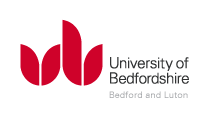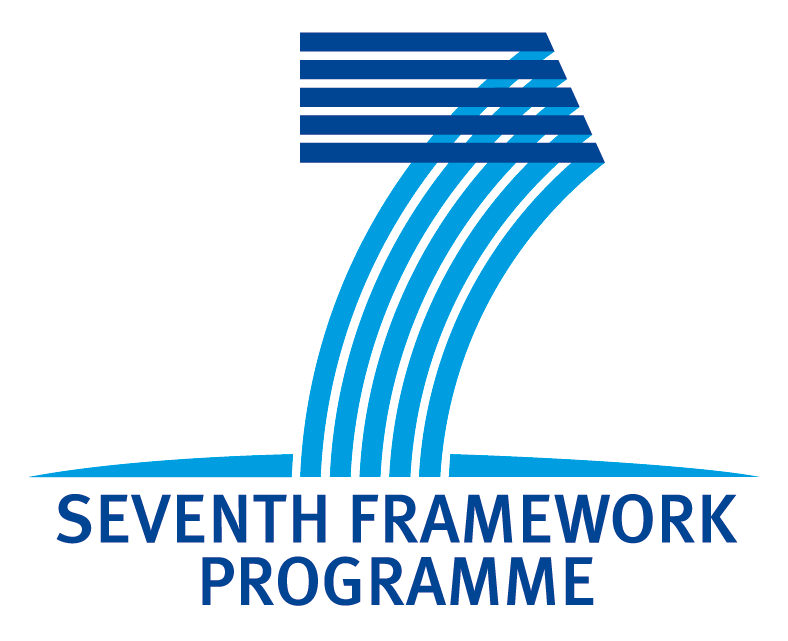In order to answer these questions, the workshop will feature keynote addresses by the following people:
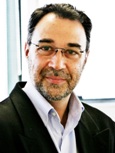
Prof. Luis Correia
Luis M. Correia was born in Portugal, on October 1958. He received the Ph.D. in Electrical and Computer Engineering
from IST-TUL (Technical University of Lisbon) in 1991, where he is currently a Professor in Telecommunications, with his
work focused in Wireless/Mobile Communications in the areas of propagation, channel characterisation, radio networks,
traffic, and services.
He has acted as a consultant for Portuguese mobile communications operators and the
telecommunications regulator, besides other public and private entities. Besides being responsible for research projects
at the national level, he has been active in various ones within the European frameworks of RACE, ACTS, IST, ICT and COST
(where he also served as evaluator and auditor), having coordinated two COST projects, and taken leadership responsibilities
at the workpackage and task levels in various ones.
He has been supervising students at both the M.Sc. and Ph.D. levels,
having authored more than 300 papers and communications in international and national journals and conferences, for which
he has served also as a reviewer, editor, and board member. He was part of the COST Domain Committee on ICT. He was the
Chairman of the Technical Programme Committee of several conferences, namely PIMRC’2002. He is part of the Expert Advisory
Group and of the Steering Board of the European eMobility platform, and the Chairman of its Working Group on Applications.
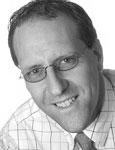
Prof. Thomas Kürner
Thomas Kürner received the Dipl.-Ing. degree in
Electrical Engineering from University of Karlsruhe
(Germany) in 1990 and the Dr.-Ing. degree in 1993
from the same university. From 1990 to 1994 he was
with the Institut fürHöchstfrequenztechnik und Elektronik
SIHE) at the University of Karlsruhe working
on wave propagation modelling, radio channel characterization
and radio network planning.
From 1994 to 2003 he was with the radio network
planning department at the headquarters of the GSM
1800 and UMTS operator E-Plus Mobilfunk GmbH
&Co KG, Düsseldorf, where he was team manager radio network planning support
being responsible for radio network planning tools, algorithms, processes
and parameters.
Since 2003 he has been a Professor for Mobile Radio Systems at the Institut
für Nachrichtentechnik at the Technical University of Braunschweig.
His working areas are propagation, traffic and mobility models for automatic
planning of mobile radio networks, planning of hybrid networks as well as indoor
channel characterization for high-speed short-range systems including future
terahertz communication systems.
He has been engaged in several international bodies such as ITU-R SG 3,
UMTS Forum Spectrum Aspects Group, COST 231, COST 273, and COST
259, where he chaired the working group “Network Aspects”.
He was also a work package leader in the European IST-MOMENTUM
project working on methods for “Automatic Planning of large-scale Radio
Networks”. He is a member of VDE/ITG, VDI and Senior Member of the
IEEE.
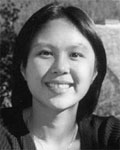
Dr. Chia-Chin Chong
Chia-Chin Chong spent two years at the Samsung Electronics
R&D and is currently a senior researcher at DOCOMO USA Labs.
She serves as an editor for IEEE Transactions on Wireless Communications
and an associate editor for IEEE Transactions on Vehicular
Technology . She has published more than 90 international journals,
conference papers, and international standard contributions. She
has received numerous awards, including the Union Radio-Scientifique
Internationale Young Scientist Award and the DOCOMO USA
Labs President Award in 2008; the IEEE International Conference
on Ultra-Wideband Best Paper Award, the DOCOMO USA Labs
President Award, and the Outstanding Young Malaysian Award in
2006; the IEE Prize and the IEE Vodafone Research Award in 1999
and 2001, respectively.
She has served on the Technical Program
Committee (TPC) of various international conferences, including
TPC cochair for the Wireless Communications Symposium of the
IEEE International Conference on Communications 2008, publicity
cochair for the IEEE International Symposium on Personal, Indoor,
and Mobile Radio Communications 2008, sponsorship chair for the
CrownCom 2008, tutorial chair for the IEEE International Conference
on Computer Communications and Networks 2009, and the
panel organizer and chair of the Fourth Generation (4G) Wireless
Forum for the IEEE GLOBECOM 2010. She is a Senior Member of the IEEE.
Her current research interests include International
Mobile Telecommunications-Advanced and LTE-Advanced cellular
systems, propagation channel measurements and modeling, orthogonal
frequency-division multiple access systems, and wireless
health care.

Dr Su-Khiong Yong
Bringing over 10 years of wireless R&D experience and standardization
leadership, SK has been involved and contributed towards the success
of several wireless standard developments in the area of WLAN and WPAN.
SK is currently with Marvell Semiconductors, Santa Clara, CA, where he
is active in WiGig Alliance, Wi-Fi Alliance and IEEE 802.11 product
development and standardization activities. SK is currently the Chair
of the Wi-Fi Alliance Display Marketing and Technical Task Group.
Prior to this, SK was with Samsung Electronics, San Jose, CA, working
on beamforming and baseband development for millimeter wave technology.
SK also led the Samsung's standardization and industry activities in
IEEE 802.15.3c, ECMA TC48 and WirelessHD and WiGig Alliance.
Prior to joining Samsung Electronics, SK was with Savi Technology Inc.,
a Lockheed Martin company, Mountain View, CA from 2007 to 2008, working on
RFID product development and standardization activities. At Savi, SK was
responsible for developing a new RFID technology and applications for
vertical market. In particular, he was involved in developing sensor
solution and integration of GPS technology for a RFID tag to enable total
visibility. SK was the U.S. delegate for the ISO/IEC JTC1/SC31 RFID
standardization effort and Active Tag Group in EPCglobal.
From 2004 to 2007, SK was with the Samsung Advanced Institute of Technology,
Suwon, Korea, where he worked primarily on system design for UWB communication,
gigabit wireless using 60-GHz technology, chaos-based communication,
channel modeling and MIMO technology development. SK served as TG3c
secretary and technical editor for TG3c channel modeling subgroup.
From 2000 to 2003, SK was involved in beyond 3G research projects
with the Mobile Virtual Centre of Excellence (VCE), an industrial consortium in the U.K.
SK was a Guest Editor for the Special Issue on Millimeter Wave Wireless Communication
Systems of the EURASIP Journal on Wireless Communications and Networking.
SK has (co)author of more than 50 published international journals articles,
conference papers, and international standard contributions. SK is the leading
editor of the book entitles on "60 GHz Technology for Gbps WLAN and WPAN: From Theory to Practice".







